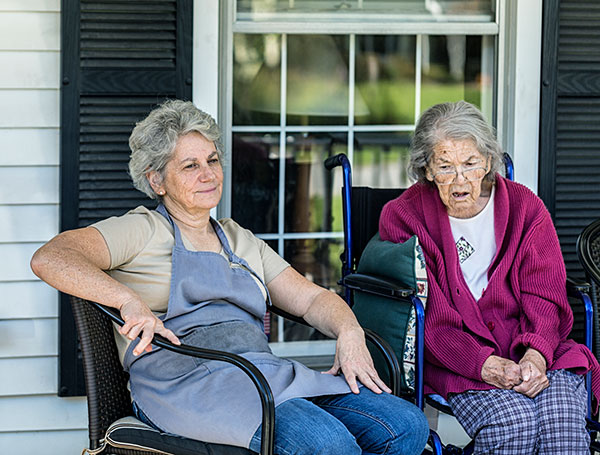How to Cope When Your Caregiving Duties End

According the Family Caregiver Alliance, approximately 34.2 million Americans are providing unpaid care to a loved one age 50 or older. And while caregiving is a demanding role that often increases health risks, once one’s caregiver role ends due to the care receiver’s death, it can leave a hole in the caregiver’s life – not only because they may be grieving for the person they lost, but suddenly, a main sense of purpose is also gone. Making matters even more complicated, it is very common to feel relief and sadness at the same time, which can lead to feelings of guilt and confusion.
Here are some tips to help in processing both the loss of a loved one and your changing life role.
Express your emotions without judgment
There is no right way to grieve. You may feel relieved that your ordeal is over. You may be feeling guilty that you could have done more. Or simply feeling an emptiness because someone you loved and cared for is no longer around. Allow yourself to feel whatever comes up and share what you’re feeling with someone you trust – a family member, friend, member of the clergy or a professional therapist. Whatever you’re feeling is perfectly natural. Your only job it to accept your feelings as a normal part of the grieving process and allow yourself to experience and express them.
Take some time off
One of the most universal feelings after a caregiving role ends is profound exhaustion. Often, while in the midst of caregiving, you don’t stop to acknowledge your own grief over what is happening. Many people feel they have to be constantly “on call” and that any acknowledgment of what they’re feeling would open a floodgate that would render them incapable of taking care of the person they love. Bottling up one’s emotions takes a lot of energy. Once the need for being constantly vigilant is no longer there, the adrenaline that kept you going fades and your body is ready for sleep. Listen to your body and take some time to rest.
Discover your life’s passion
Caregiving usually requires some sacrifice on the part of the caregiver. Those who have been taking care of someone for several years may no longer even remember where their true passion lies. Take some time to figure out what it is you want to do with the rest of your life. Don’t jump into a new commitment just to fill the void left by caregiving. Maybe you found passion in caregiving and want to make it a full-time job. Maybe you’ve discovered other people in your life have been neglected and those relationships need some nurturing. Whatever you discover your passion to be, now is the time to pursue it.
Use this as a time to reconnect with friends and family
Caregiving is a role that can take up a great deal of time. While caregiving, you may have let some of your relationships take a back seat. Now is a perfect time to reconnect with those family members and friends. Sharing your feelings – whatever they are – with others can be very healing. You may be surprised by how many people there are who want to hear your story. Sharing it can be healing for both you and the person you’re sharing with.
Take some time for some self-assessment
Caregiving can change people, often in very profound ways. Take some time to acknowledge the ways you’ve changed and how they can be applied to pursuing things that bring you joy. Gain an appreciation for the new skills you’ve learned – patience, tenacity, focus, and compassion. These are all skills that make you valuable as an employee, a volunteer, and a human being. Celebrate your new self and take your newfound skills to complete your life’s goals.
![LifeCare Advocates [logo]](https://www.lcadvocates.com/wp-content/uploads/sites/270/2017/11/logo.png)